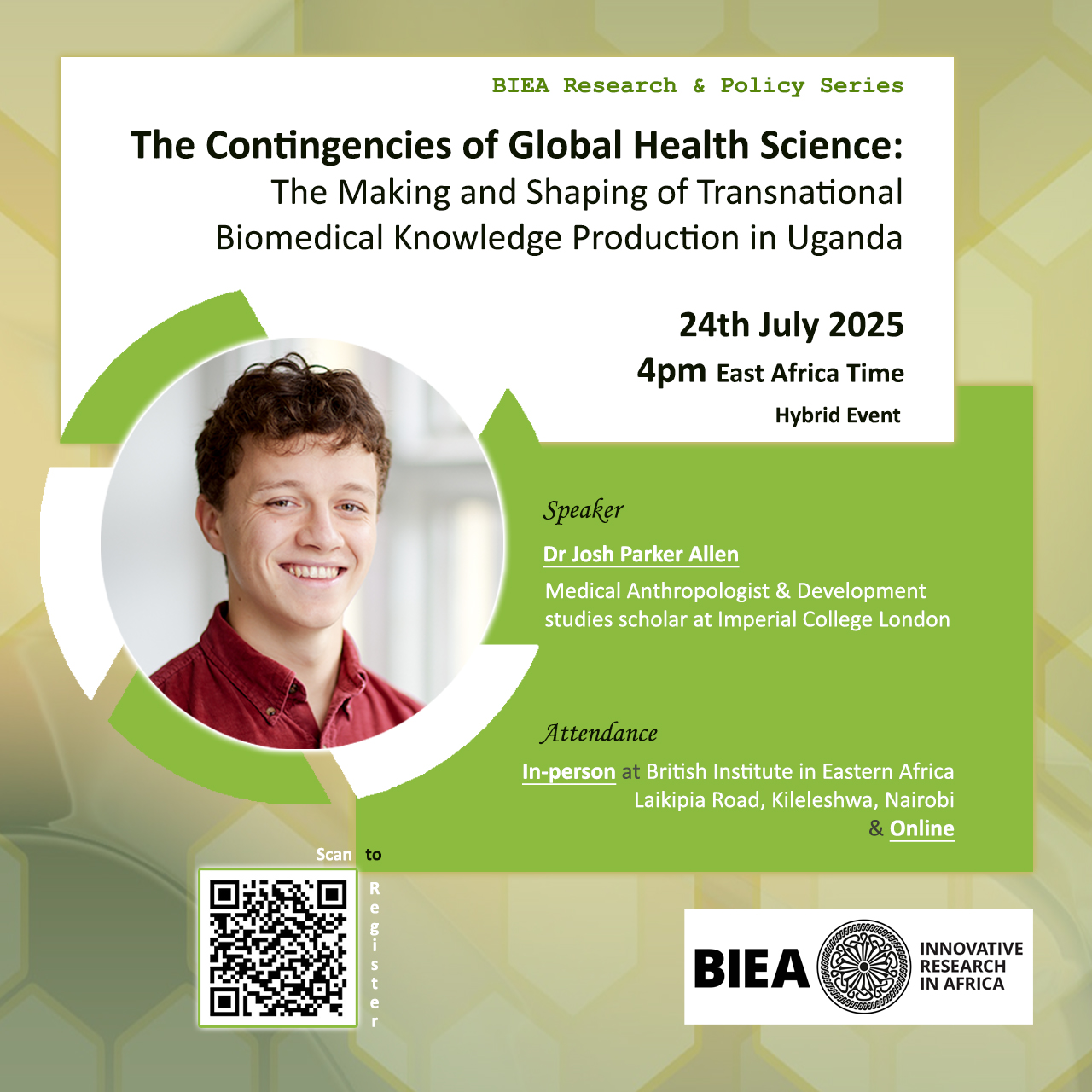
The Contingencies of Global Health Science
The Making and Shaping of Transnational Biomedical Knowledge Production in Uganda
Event : BIEA Research & Policy Series
Registration
- In-person https://biea.ac.uk/events/the-contingencies-of-global-health-science/in-person_attendance
- Online https://biea.ac.uk/events/the-contingencies-of-global-health-science/online_attendance
In global health and development, data and scientific evidence have become ever more important components of policymaking. Yet as we know from critical research across the social science and humanities, such evidence is always contingent: shaped by wider political, social, and economic forces; casting light on some things and necessarily not others. In this seminar, I present findings from over a year of ethnographic research in two research institutes in Uganda investigating the politics of transnational biomedical knowledge production in global health in the country. These findings reveal how global health science is shaped by various forces: political-economic, social, historical, and epistemic. I show how and why these forces – the contingencies that shape the production of knowledge in this field – produce epistemic distance between Northern scientists and the people, places, and pathogens they are studying. Though this epistemic distance is slightly mitigated by creative work from Southern scientists, it nevertheless presents a major challenge to global health science’s goal of reducing health inequalities, resulting in the production of knowledge that is less attuned to local conditions.
Speaker:
Dr Josh Parker Allen is a medical anthropologist and development studies scholar at Imperial College London. He is a postdoctoral researcher with the ITARA programme, investigating the possibilities of integrated care for TB and chronic respiratory diseases. He has a PhD in international development from the University of Oxford, which focused on the politics of scientific knowledge production in global health in Uganda, based upon extensive ethnographic fieldwork.
Discussants:
- Dr. Purity Kwamboka is a Veterinary Officer at Kenya’s Ministry of Agriculture and Livestock Development, where she is part of the Veterinary Epidemiology and Economics Section. Her work focuses on disease surveillance, outbreak response and coordinating national antimicrobial resistance (AMR) strategies through a One Health lens. She is currently pursuing an MSc in Global One Health: Diseases at the Human-Animal Interface, a joint program by the University of Pretoria and the Institute of Tropical Medicine, Antwerp. Dr. Kwamboka is passionate about strengthening animal health systems and advancing evidence-based policies to tackle emerging zoonotic threats.
-
Dr. Peris Njoki Kung’u is a veterinary epidemiologist and public health practitioner with over a decade of experience working at the intersection of animal health, community livelihoods, and health systems in Kenya. She is the founder of Nomad Nexus Africa, a consultancy focused on delivering context-specific, sustainable solutions in underserved communities. Her work centers on translating field-based evidence into actionable strategies for neglected tropical diseases (NTDs), zoonoses, and One Health programming. She has led and contributed to interdisciplinary research with institutions such as the Kenya Women Veterinary Association (KWVA), the International Development Research Centre (IDRC), and Washington State University Global Health (WSU-GH). Passionate about empowering marginalized populations, Peris is committed to developing innovative, evidence-based approaches that bridge the gap between research and practice. Her work offers grounded insights into how global health research can more meaningfully reflect the lived realities of the communities it aims to serve.





